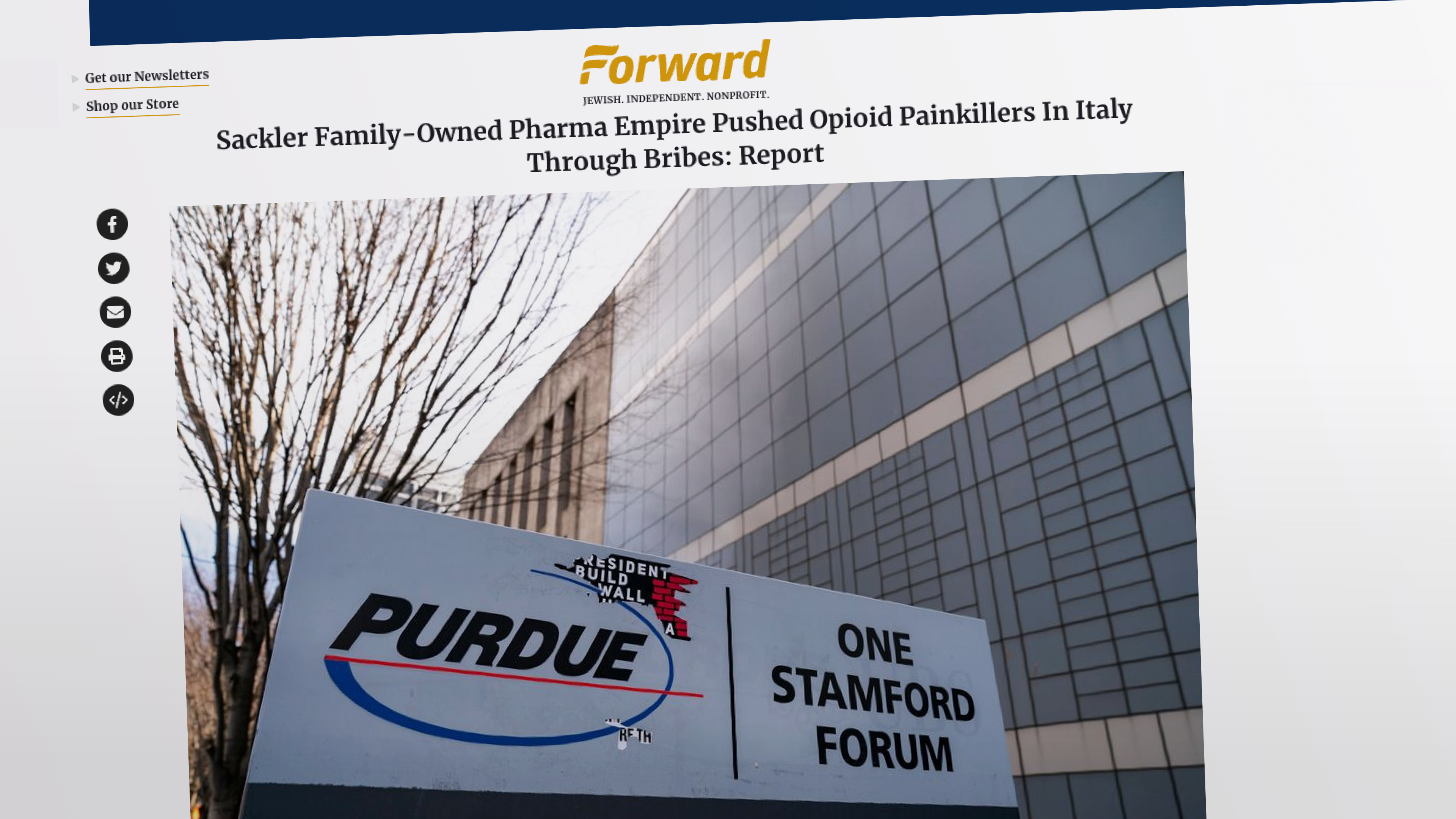In 2016, Freedom exposed the Sacklers for effectively convincing doctors that their product is not as addictive as previously thought, raking in an estimated $35 billion in OxyContin sales in the process. Since that exposé, Purdue has had to pay out enormous penalties in lawsuits filed by U.S. cities and states for misbranding their drug, but compared to the money the Sacklers take in, it’s a drop in the bucket.
All that may change, however, with the recent unprecedented suit filed by the city of Everett, Washington, which claims that Purdue failed to prevent the diversion of OxyContin into the black market. The lawsuit also charges that Purdue never notified the Drug Enforcement Agency (DEA) of this suspected diversion, which is required by law.
Legal experts believe that if the city of Everett prevails in civil court, the floodgates could open for other litigation.
“This point could lead to an avalanche of cases from every city, every state in the country that needs money,” says Erik Gordon, a professor with the University of Michigan Ross School of Business who follows legal issues faced by the pharmaceutical industry.
To date, Purdue has been sued by the states of New Hampshire, South Carolina, Missouri, Kentucky, New Jersey, Alaska, Louisiana, Washington, and Ohio, but all of those actions focused on misbranding.
Purdue and three executives in 2007 pleaded guilty to federal charges related to the misbranding of OxyContin, and agreed to pay a total of $634.5 million to resolve a U.S. Justice Department probe.
That year, the privately held company reached a $19.5 million settlement with 26 states and the District of Columbia. It agreed in 2015 to pay $24 million to resolve a lawsuit by Kentucky.
Purdue’s creators—Arthur, Mortimer and Raymond Sackler—all became psychiatrists in their early medical careers. Arthur, however, also cut his teeth in advertising at William Douglas McAdams, specializing in churning out publications aimed at doctors. His efforts put him into the Medical Advertising Hall of Fame, which describes him as an “advocate for full-blown marketing programs (field force plus multimedia promotional activities) employed today.”
When it came to getting doctors to prescribe his company’s drugs, Arthur was a wizard. He successfully flogged Librium and Valium for Hoffmann-LaRoche, making the latter the first
When Arthur tripped off this mortal coil, Mortimer and Raymond employed his ad strategies to sell the lie of OxyContin’s lack of addictiveness for the family-owned Purdue Pharma. Up to now, it’s worked, and the Sacklers are high among America’s wealthiest families—despite the fact that Mortimer renounced his citizenship to avoid U.S. taxes.
Meanwhile, people die from opioid overdose in the tens of thousands every year.























